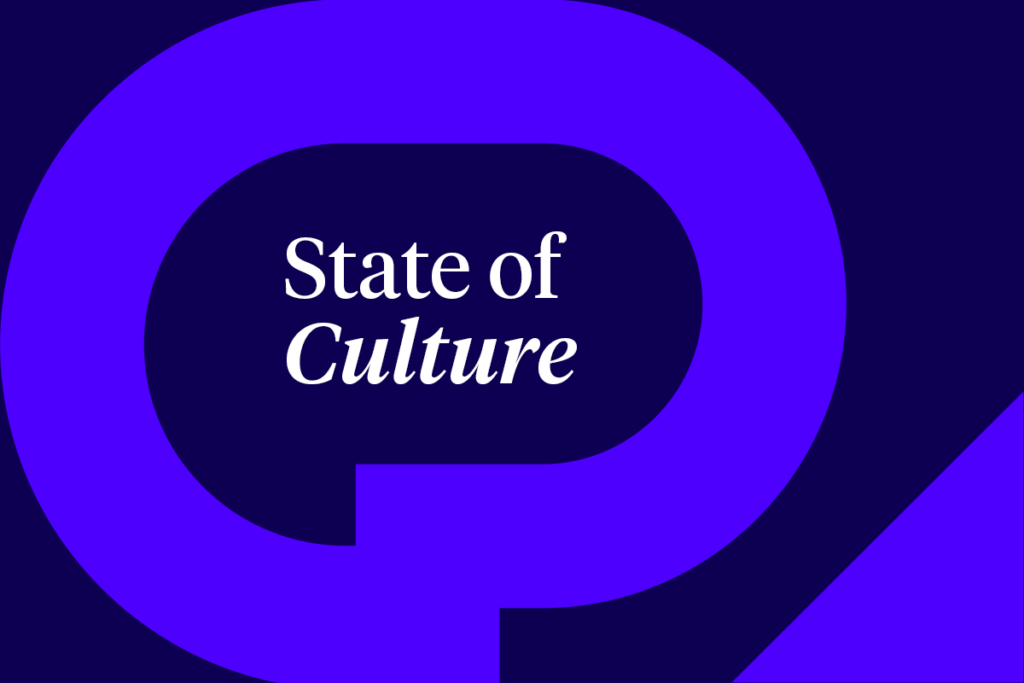This post originally appeared on Jessica Kriegel’s LinkedIn. To subscribe to her every-Friday newsletter, also on LinkedIn, go right here.
This topic will be broad brush to a certain extent, but it’s something we constantly hear about from clients at CULTURE PARTNERS – from the executive level down to the middle management ranks.
For much of 2021 and into mid-2022, a core narrative (and this does get ideological, yes) seemed to be “No one wants to work anymore.” This was all tied to Quiet Quitting, The Great Resignation, and – later on – “QuitToking.” There was this idea, whether you thought it was tied to “free money” or a decline in work ethic, that no one wanted to work and it was hard for companies to find good people they needed to advance and grow.
That narrative was true for some but mostly nonsense– there are loafers in the world who don’t want to work, but most people are actively seeking some type of employment and a place to spend time and earn income and pay their way, and ideally, that place has some broader purpose for them beyond a paycheck too. We still have millions of job openings, despite being in some form of a potential recession. People are hiring, and people are getting hired.
The narrative you are hearing less about is that people have forgotten how to work.
We hear from executives and managers constantly that employees don’t work with pace – they dawdle on projects, take a week to finish something that could have been done in 2-3 hours, and generally seem unclear on priorities. As a leader, I have, in the past, experienced that with my team members. The voice in my head asks “What on Earth are they doing all day?”
At Culture Partners, we hear this enough from people in various companies that it seems like a trend line, so I wanted to call it out quickly and discuss some potential reasons for it.
At the highest levels, here are a couple of reasons why people might be struggling with “how” to work:
- The most obvious is that the pandemic changed work norms and we’re still in a complicated dance around “What is productivity?” and “How much surveillance of employees is justified?”
- Related to that, COVID didn’t really change the fundamentals of work (products and services, employees getting a salary or an hourly wage, etc.), but it did change our connection to work – in terms of, a lot of people re-evaluated and said “This is not the biggest thing in my life anymore.”
- Managers are not doing a good job training up the next generation of workers. Some managers are excellent at this, but not all.
- Organizations are bad at setting priorities. Again, not all – but many, and this has been the case for decades now. They fall into “Shiny Object Syndrome,” or they change priorities at an executive level but don’t communicate that priority shift, so people at execution levels are still working on the same things they were told to be important months ago.
- Maybe we are a bit lazier?
When I look at this problem, the easiest solution seems to be how Bill Belichick coached the Patriots for years: If you’re “in the building” (i.e. at work), that’s your focus while there. Work with pace and intention on projects that have been defined as important, with a clear idea of (a) the purpose of the project and (b) how you’ll know if the outcome is successful. That’s inherently what “work” is.
Of course, it’s not that simple – because some managers do an absolutely terrible job of communicating what’s important, how it will be measured, or even what’s the goal of that day. There can be a lot of leaping from one deliverable to the next. It’s a big part of burnout.
What managers need to do:
Managers and executives need to get better at having conversations and listening to employees – and, honestly, leaning into some form of “love.” Agape love, where you will the good of another. You need to be asking:
- How do you feel about what you’re doing?
- What’s hard about it?
- What’s easy?
- What do you enjoy?
- Where could you contribute more?
- How am I good and not good at explaining what’s a priority?
- How do you decide what to work on in a given day?
- How could I be better at driving what you work on?
The reason we have bosses and hierarchies, despite their flaws, is that people need to be marching in the same general direction – ideally, every day, you’d work with a solid pace and quality output on what your boss deems important. Again, not that simple, but that’s how work should be. We’ve gotten far afield of that in some organizations because of bad promotions into management, declining culture, COVID work shifts, new financial models, constant pivots, and more.
The most powerful cultural change you can make at work is to shift the experiences of the people you work with, which in turn will shift their beliefs. And the easiest way to shift experiences is to just listen and talk to people about what matters, what’s hard, what’s easy, and what’s a priority. Show up, and actively listen.
And so finally that leaves us with the question that started this whole article: How should we work?
Let me share how I work, and hope that offers some insight you can benefit from:
- I’m laser focused on a day-to-day basis on the highest and best use of my time according to what my boss thinks is the highest and best use of my time… not what I think. That means I don’t miss deadlines for my boss. I just don’t. Other things may fall, it might only be 80% well done, but what my boss wants, my boss gets and on time. Why? Because I want to be a reliable person that my boss can count on. Not because I’m brown-nosing, but because he/she generally has more context and understanding about what priorities exist for the business and so I trust my boss and I get sh*t done.
- If I don’t trust my boss, I leave. I just don’t, can’t, won’t work there. It makes me hate every day and I have to not hate my job to do my job well.
- My work pace is wildly inconsistent. Work doesn’t look like a moderate jogger’s pace all day long. It looks like a sprint following by a break, followed by a jog, followed by another sprint, followed by a nap. I adjust my pace to the needs of the day. And I don’t feel bad for taking breaks because I work with integrity and I’m reliable (see tip 1).
- Every once in a while, I think about what my boss’ boss is worried about and I look at my work through that lens. What can I learn? How can I grow? What would I do differently if I was worried about what they’re worried about?
How do you work?




